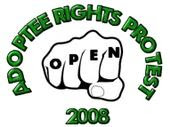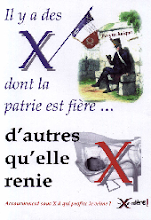 WASHINGTON TIMES
WASHINGTON TIMESMay 19, 2008
Editorial: The anonymous gift of adoption
It sounds like a dream come true for the tens of thousands of adoptees in the U.S. — the ability to find and reconnect with a birth parent or parents. That was the case for Maine Sen. Paula Benoit, whose highly publicized ordeal to find her birth parents not only led to meeting new relatives ( at least three of whom are also ironically lawmakers) but also to legislative action that changed the law in her state so that other adult adoptees could do the same. Her efforts propelled and initiated efforts in a handful of other states to move forward with similar measures. But in the state of New Jersey, the measure has failed several times — and for good reason.
What Mrs. Benoit failed to consider in her identity quest is the potentially detrimental effect that her law (and others like it) to unseal birth records could have on parents who choose to privately put their child up for adoption. It is estimated that there are about 1 million children in the U.S. who live with adoptive parents and 2 to 4 percent of American families include an adopted child. There are several kinds of adoption arrangements that include open, closed (confidential), mediated (non-identifying) and fully disclosed. While the majority of adoptions (69 percent) are open, those who choose to take such a step confidentially should have that option honored, not overturned.
Some adoptees cite medical and heredity reasons for tracking down birth parents. And while that may be a legitimate concern in some cases, it is not the norm. In a study of American adolescents, the Search Institute found that the majority of adolescents simply wanted to know what their parents "looked like" (94 percent) or "why" they were adopted (72 percent).
And, while openness can be a liberating experience for birth parent and adoptee, it's not for everyone. Some birth mothers have started new families and for personal reasons may not want their identity disclosed. It should be up to them — when and if they want to share this information. Anything else is a clear invasion of privacy. Even adoption advocates caution adoptees when seeking out a birth parent about the kind of mistakes that happen when a random search goes awry. Search site adoption.com warns: "Unfortunately, there have been cases of people contacting ... birthparents claiming to be their ... child, or sibling when this is not the case. Be aware that this can happen."
There are other not-so-obvious implications of taking away a birth mother's request for confidentiality. In USA Today, Thomas Atwood, president of the National Council for Adoption, surmised: "Birth mothers were promised privacy, and if that promise is broken, fewer women will choose adoption over abortion." Catholic groups have echoed this sentiment.
There are many famous adoptive parents — Al Roker, Michelle Pfeiffer, Sen. Kay Bailey Hutchison, Magic Johnson — who are championed for their selfless acts of love. There are also famous adoptees, including John Lennon and Victoria Rowell, who are grateful for the loving homes they were provided. But you don't often hear about the not so "famous" birth parents, who for personal (likely hardship) reasons of their own choose to place their children up for adoption in the hope that it will provide them a better life.
Adoption is often referred to as a gift. And just as charitable organizations rely on private "gifts" from anonymous donors, parents who give the gift of adoption also have a reasonable right to remain anonymous. It's not up to the recipient to find the donor.
The state of Michigan gives a confidential-adoption birth mother the opportunity to submit her identifying information to the state at any time, should she have a change of heart. Other states would do just as well to leave this choice up to the birth mother.
Link to article








No comments:
Post a Comment